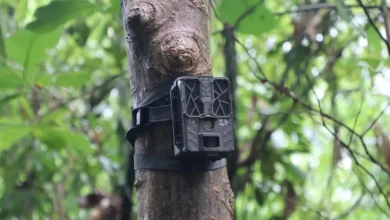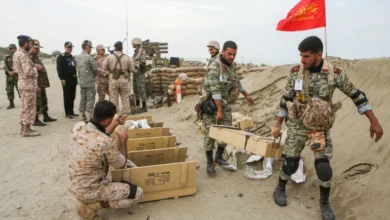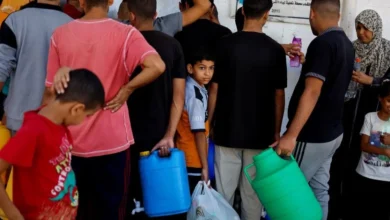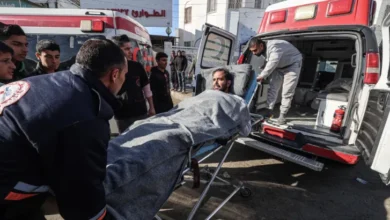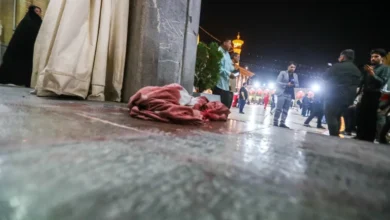Since the earthquake, these northwest Syrian villagers camp out every night
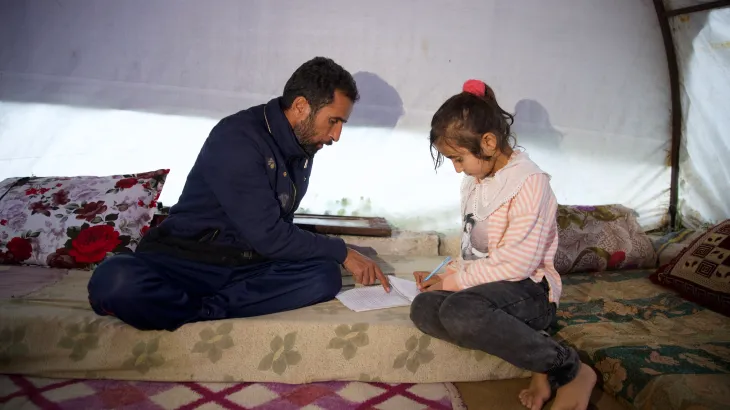
At the foot of the Orontes River, in the northern countryside of Idlib, lies the village of al-Hamziyah, once known for its lush, fertile lands.
Now, as the sun sets every day, it turns into a refugee camp for the villagers.
Although it has been a year since the February 6 earthquake, the temblor’s effects are still evident on the village’s homes, where you can find cracked walls, and on the fields collapsing with the weight of the water that flooded them.
And, near every house, there is a tent for a family too frightened to sleep inside their house.
No longer habitable
“I fear that the earth will shake and that the Orontes will swallow us,” Yasmine Misto, who is in her 30s, said.
Yasmine, her husband Khaled, their 10 children and her mother-in-law all sleep in a leaky tent with rainwater constantly trickling in near their house, which collapsed partially in the earthquake.
“I was six months pregnant, and at first I thought I was feeling dizzy. I didn’t realise it was an earthquake,” Yasmine said, describing the panic of one year ago as she scrambled to save her children and mother-in-law, terrified the whole time and thinking that the house would fall on their heads.
Yasmine gave birth a month later, in her seventh month, to a premature baby boy who has thrived and grown since those stressful early days and keeps them very busy in the tent.
The family’s house is no longer habitable, and it was only a few days ago that Yasmine was finally able to dig out some utensils from under the ruins of the kitchen to start using them again in the tent.
Yasmine and her husband were agricultural labourers, but when the Orontes overflowed its banks in the earthquake and permanently expanded its basin, many fields were inundated and work opportunities became very hard to come by.
“We couldn’t fix anything in our house,” Yasmine said. “We could barely afford bread, diapers, and medicine.”
But Yasmine is fine with that, as she feels the tent is safer than the house. “I get scared when I hear mention of the earthquake, and I feel like my heart has aged 10 years,” she said.
Nowhere to go
The muddy streets of al-Hamziyah are filled with stories of loss and constant fear.
The story of Abdul Karim al-Nisa and his family is not much different from Yasmine’s – they also spend the day in their house, whose walls are cracked, and sleep in a simple tent nearby.
“I repaired a lot of the damage. I paid more than $1,000 so far,” Abdul Karim, 40, told Al Jazeera, pointing to the house he is still afraid to live in. The amount is no small sum for him.
Abdul Karim tries to track news of the earthquake and aftershocks through social media groups that have been a hotbed of rumours and unscientific predictions over the past months, causing constant anxiety for survivors.
“I will never forget the earthquake until I die,” he said. “I never feel safe because of aftershocks.



